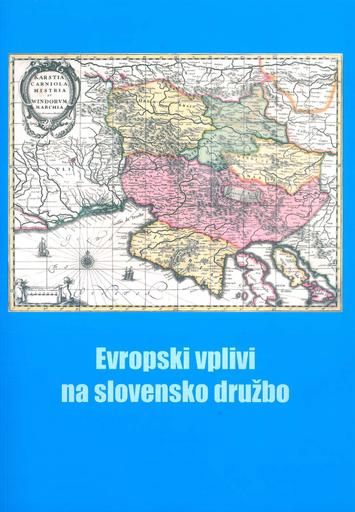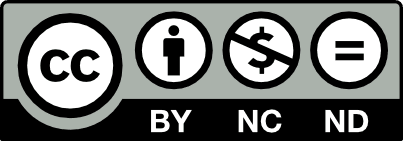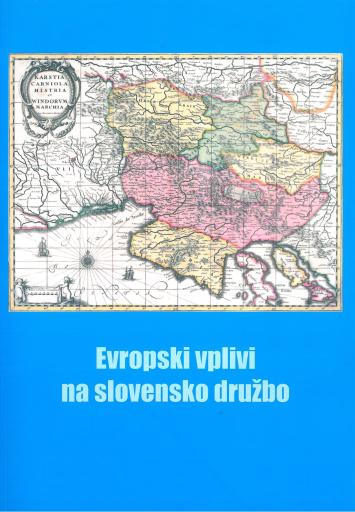
/
Literature
/
Monographs
European Influence on the Political Movement of Slovenian Catholics

Author(s):Janko Prunk
Co-author(s):Nevenka Troha (ur.), Mojca Šorn (ur.), Bojan Balkovec (ur.)
Leto:2008
Publisher(s):Zveza zgodovinskih društev Slovenije, Ljubljana
Source(s):Evropski vplivi na slovensko družbo
Language(s):slovenščina
Type(s) of material:text
Keywords:zgodovina političnih idej, politični katolicizem, krščansko-socialni nauk, krščanski socializem, avtoritarno korporativizem, history of politicai ideas, politicai Catholicism, Christian social teachings, Christian socialism, authoritarian corporativism
Collection(s):Zbirka zgodovinskega časopisa ; 35
Rights:

This work by Janko Prunk is licensed under Creative Commons Attribution-NonCommercial-NoDerivs 4.0 International
Files (1)

Name:evropski_vplivi_na_slovensko_druzbo.pdf
Size:185.05MB
Format:application/pdf
Permanent link:https://hdl.handle.net/11686/file18570
Description
This paper tries to show the development of politicai Catholicism in Europe, in which at thè end of the 19th Century the Christian social direction prevails, and its acceptance in Slovenia in the form of the Christian social movement of Janez Evangelist Krek. Furthermore, it explains and analyses the development of political Catholicism or the Christian social movement in Europe between the two world wars, which was divided into three directions under the influence of three totalitarianisms and a crisis of the liberal democracy: into a traditional, Christian social direction, dedicated to the Rerum novarum encyclical; into a left-wing Christian social direction, which, in fact, separated itself from politicai Catholicism and moved over to socialist views; into a right-wing regressive voluntaristic corporativist direction, which became more and more similar to Fascist social views. All three directions had followers in Slovenia as well. The most original direction was that of the Slovenian Christian socialism which, in an international scale, covered the largest scope among all European nations and whose views and politicai paths led the most to the lefit, since it established the Liberation Front together with the Communists in 1941.
Metadata (13)
- identifierhttps://hdl.handle.net/11686/35285
- title
- Evropski vplivi na politično gibanje slovenskih katoličanov
- European Influence on the Political Movement of Slovenian Catholics
- creator
- Janko Prunk
- contributor
- Nevenka Troha (ur.)
- Mojca Šorn (ur.)
- Bojan Balkovec (ur.)
- subject
- zgodovina političnih idej
- politični katolicizem
- krščansko-socialni nauk
- krščanski socializem
- avtoritarno korporativizem
- history of politicai ideas
- politicai Catholicism
- Christian social teachings
- Christian socialism
- authoritarian corporativism
- description
- Referat poskuša pokazati razvoj političnega katolicizma v Evropi, v katerem ob koncu 19. stoletja prevlada krščansko-socialna smer, in njegovo sprejemanje na Slovenskem v obliki krščansko-socialnega gibanja Janeza Evangelista Kreka. Nadalje razloži in analizira razvoj političnega katolicizma oziroma krščansko-socialnega gibanja v Evropi med obema vojnama, ki se pod vplivom treh totalitarizmov in krize liberalne demokracije diferencira v tri smeri: neko tradicionalno, krščansko-socialno, zavezano encikliki Rerum novarum; na levičarsko krščansko-socialistično, ki se pravzaprav izloča iz političnega katolicizma in prehaja na socialistične poglede; na desno regresivno voluntaristično korporativistično, ki postaja podobna fašističnim socialnim pogledom. Vse tri smeri so imele svoje posnemovalce tudi na Slovenskem. Najbolj izvirna smer je slovenski krščanski socializem, kije v vsenarodnem merilu dosegel največji obseg med vsemi evropskimi narodi inje šel v svojih pogledih in politični poti najbolj na levo, ko je skupaj s komunisti leta 1941 ustanovil Osvobodilno fronto.
- This paper tries to show the development of politicai Catholicism in Europe, in which at thè end of the 19th Century the Christian social direction prevails, and its acceptance in Slovenia in the form of the Christian social movement of Janez Evangelist Krek. Furthermore, it explains and analyses the development of political Catholicism or the Christian social movement in Europe between the two world wars, which was divided into three directions under the influence of three totalitarianisms and a crisis of the liberal democracy: into a traditional, Christian social direction, dedicated to the Rerum novarum encyclical; into a left-wing Christian social direction, which, in fact, separated itself from politicai Catholicism and moved over to socialist views; into a right-wing regressive voluntaristic corporativist direction, which became more and more similar to Fascist social views. All three directions had followers in Slovenia as well. The most original direction was that of the Slovenian Christian socialism which, in an international scale, covered the largest scope among all European nations and whose views and politicai paths led the most to the lefit, since it established the Liberation Front together with the Communists in 1941.
- publisher
- Zveza zgodovinskih društev Slovenije
- collection
- Zbirka zgodovinskega časopisa ; 35
- date
- 2008
- type
- besedilo
- language
- Slovenščina
- isPartOf
- rights
- license: ccByNcNd
Citirano v (1)
| Tipologija | Avtor(ji) | Naslov | Kraj | Založba | Leto |
|---|---|---|---|---|---|
| 1.01 Izvirni znanstveni članek | Blaj Hribar, Neja | "Ločitev škofa-duhovnika in škofa-politika ni iznajdba tega peklenskega slovenskega liberalizma." : duhovščina in Rimskokatoliška cerkev v publicističnih ter literarnih delih Slovenskega naroda (1890-1914) | Celje | Zgodovinsko društvo | 2014 |
Seznam literature v delu (6)
| Stran | Avtor | Naslov | Vir | Kraj | Založba | Leto |
|---|---|---|---|---|---|---|
| 170 | Pelikan, Egon | Akomodacija ideologije političnega katolicizma na Slovenskem | Maribor | 1997 | ||
| 170 | Rahten, Andrej | Slovenska ljudska stranka v dunajskem parlamentu : slovenska parlamentarna politika v habsburški monarhiji 1897-1914 | Celje | 2001 | ||
| 170 | Prunk, Janko | Pot krščanskih socialistov v Osvobodilno fronto slovenskega naroda | Ljubljana | 1977 | ||
| 170 | Prunk, Janko | Racionalistična civilizacija | Ljubljana | 2008 | ||
| 171 | Davies, Norman | Europe, A History | London | 1996 | ||
| 171 | Prunk, Janko | Kratka zgodovina Slovenije | Ljubljana | 2008 |